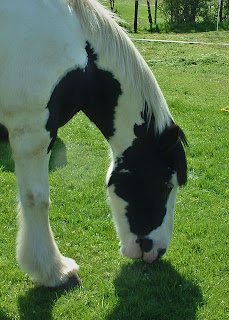compared with healthy horses, a recent study has revealed.
Equine grass sickness (EGS, also known as equine dysautonomia) damages the autonomic nervous system – the part of the horse’s nervous system that controls involuntary functions. Its effects are particularly apparent in the gastro-intestinal tract. Clinical signs range from depression, with difficulty eating and swallowing, to reflux of stomach contents, weight loss and death.
The exact cause is unknown, but researchers now know a lot about risk factors to be avoided and believe that a type of toxin is involved. Is EGS is associated with ingestion of mycotoxin-producing fungi?
Researchers, led by Bruce McGorum at the University of Edinburgh, conducted a study to identify potential causal fungi. They analysed the mycobiota within the gut contents of horses with grass sickness and compared their findings with samples taken from horses that died from reasons other than gastro-intestinal or neurological problems. They also analysed faecal samples from unaffected horses grazing the same pasture as horses with grass sickness.
They found a very rich and diverse gastro-intestinal mycobiota in all the horses. The mycobiota appeared to be richer (ie containing more different types of fungi) and more diverse (a more even distribution of the types of organism) in grazing horses. Mycobiota richness was greater in horses with EGS.
The research team identified 56 key “phylotypes” that were more common in EGS samples. Many of these key phylotypes were extremophiles (organisms able to survive in extreme environments) or were considered likely to produce extrolites (secreted metabolites) that might have toxic effects.
These changes in the mycobiota have not been shown to cause EGS. Further work is needed to determine whether neurotoxic extrolites from these key phylotypes play a role in causing grass sickness.
For more details, see:
Equine grass sickness (a multiple systems neuropathy) is associated with alterations in the gastrointestinal mycobiome
Bruce C. McGorum, Zihao Chen, Laura Glendinning, Hyun S. Gweon, Luanne Hunt, Alasdair Ivens, John A. Keen, R. Scott Pirie, Joanne Taylor, Toby Wilkinson & Gerry McLachlan
Animal Microbiome (2021) vol 3, Article number: 70


No comments:
Post a Comment